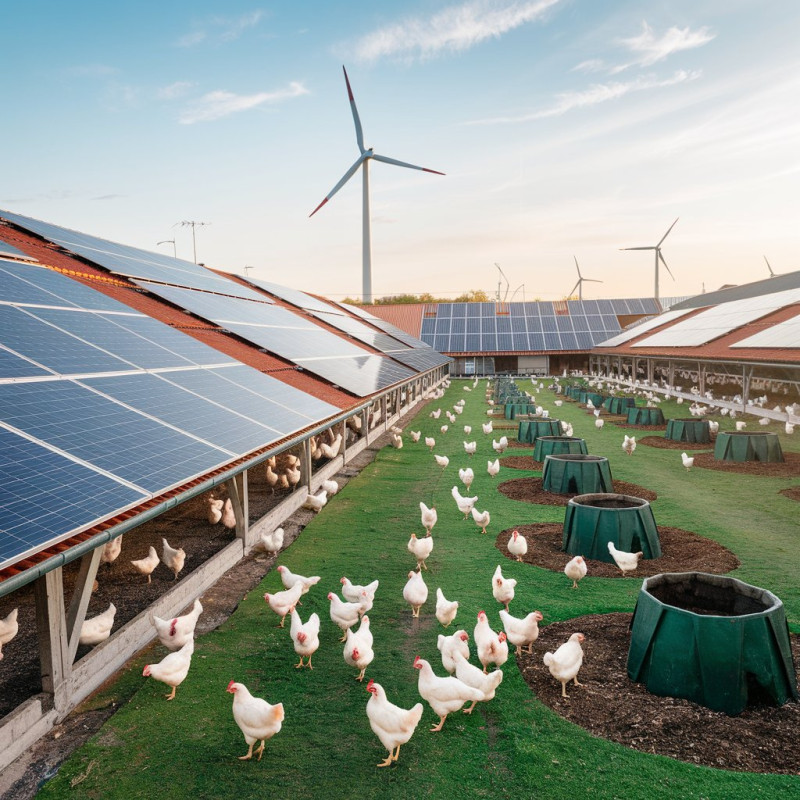Sustainable Practices in Poultry Farming
Date : 2025-01-21
Sustainability has become a crucial focus in agriculture, especially in poultry farming. By adopting eco-friendly practices, poultry farmers can reduce their environmental footprint, enhance animal welfare, and improve profitability. Here are some key sustainable practices in poultry farming:
1. Efficient Feed Management
Feed is the largest cost and environmental impact factor in poultry farming. By optimizing feed formulations and reducing waste, farmers can lower costs and minimize the carbon footprint.
Use of locally sourced ingredients: This reduces transportation emissions.
Precision feeding: Tailoring feed to the specific needs of different poultry breeds improves feed efficiency.
2. Waste Management and Recycling
Effective waste management helps reduce pollution and can provide additional income streams.
Composting: Poultry litter can be composted and used as organic fertilizer.
Biogas production: Poultry waste can be converted into biogas, providing a renewable energy source.
3. Water Conservation
Water is essential in poultry farming, but its use must be managed sustainably.
Efficient watering systems: Nipple drinkers and automated waterers reduce water wastage.
Rainwater harvesting: Collecting and storing rainwater can supplement water needs and reduce reliance on groundwater.
4. Energy Efficiency
Reducing energy consumption lowers costs and environmental impact.
Renewable energy sources: Solar panels and wind turbines can power poultry operations.
Energy-efficient equipment: Using energy-efficient lighting and ventilation systems reduces energy use.
5. Enhancing Biodiversity
Integrating poultry farming with natural ecosystems can enhance biodiversity and improve farm resilience.
Agroforestry: Planting trees around poultry farms provides shade, enhances biodiversity, and sequesters carbon.
Pollinator-friendly plants: Planting flowers and shrubs that attract pollinators supports local ecosystems.
6. Animal Welfare
Ensuring high standards of animal welfare is integral to sustainable poultry farming.
Pasture-raised poultry: Allowing poultry to roam freely improves their quality of life and reduces disease risks.
Enriched environments: Providing perches, dust baths, and other enrichments supports natural behaviors.
7. Community Engagement and Education
Engaging with the local community and educating consumers about sustainable practices can foster support and increase demand for sustainably produced poultry products.
Community programs: Hosting farm tours and workshops educates the public about sustainable farming.
Transparent labeling: Clearly labeling products with information about sustainable practices builds consumer trust.
Conclusion
Sustainable practices in poultry farming not only benefit the environment but also improve farm profitability and animal welfare. By adopting these practices, farmers can ensure a more sustainable future for the industry and contribute positively to global food systems.